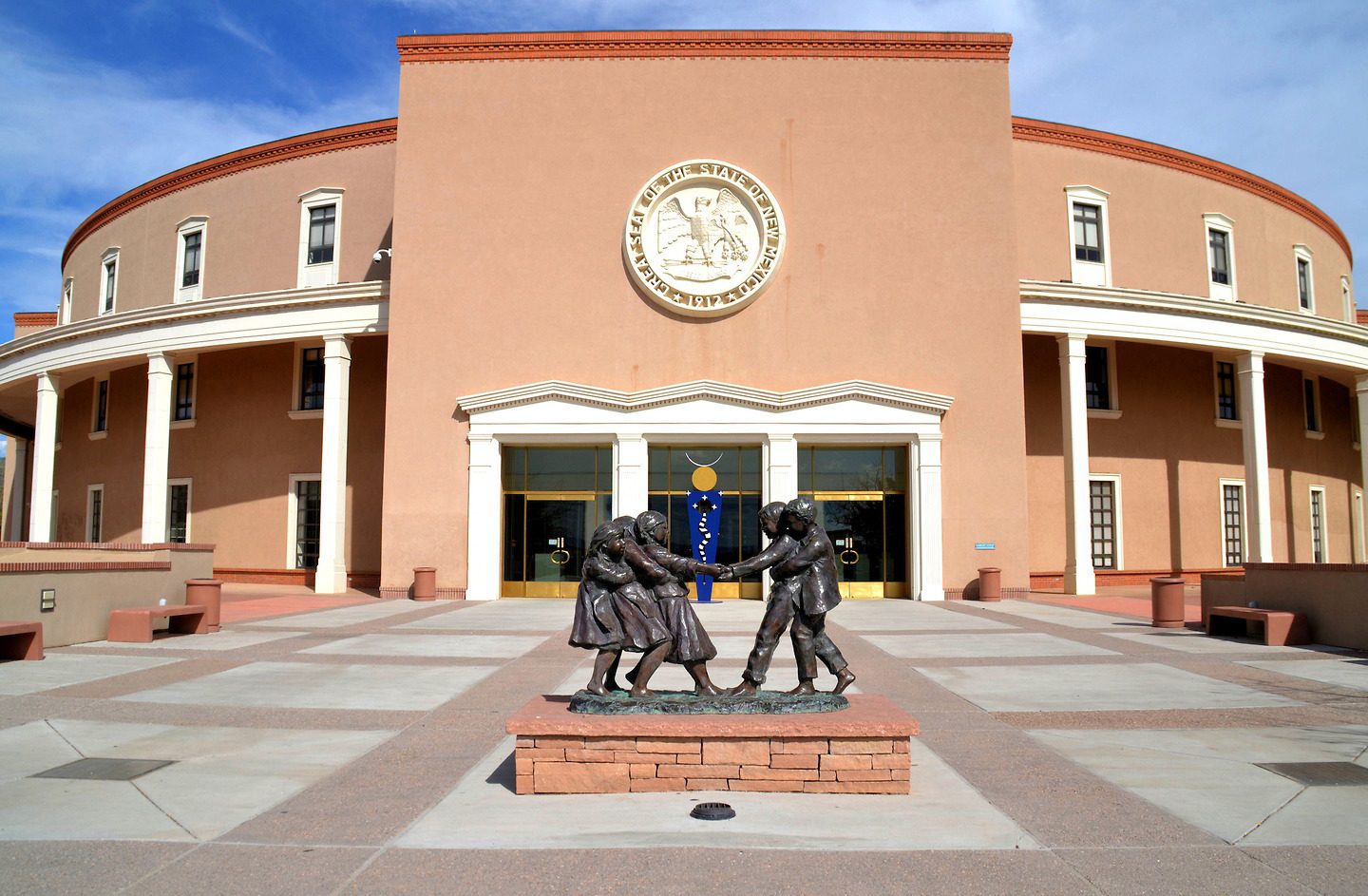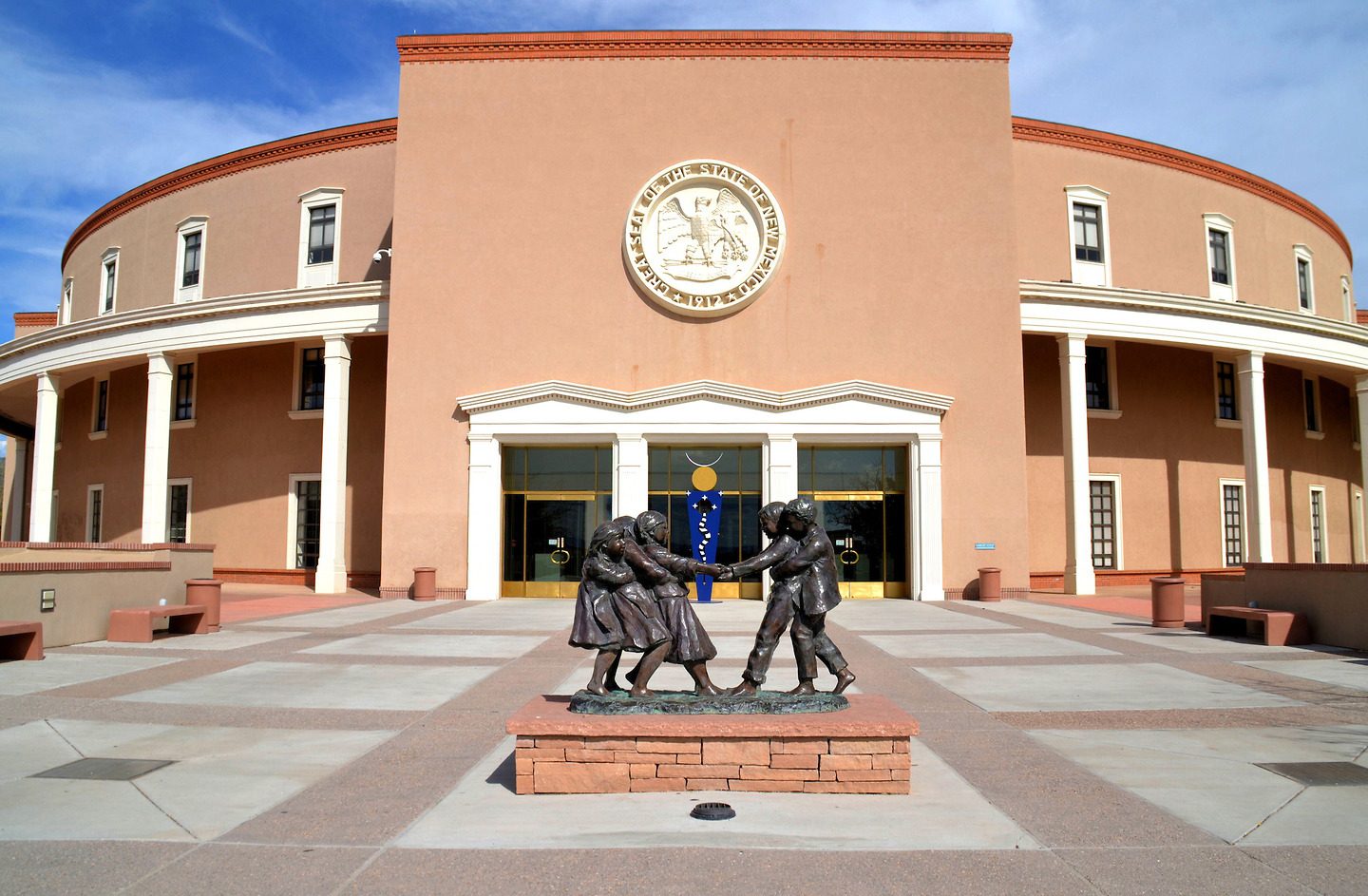House deadlocks on Clean Fuel Standard Act, which fails on tie vote

With the clock ticking down to the end of the Legislative session, the House of Representatives rejected a bill on a tie vote during the early morning hours on Thursday aimed at reducing the carbon intensity of transportation fuels.
The House voted 33-33 for the Clean Fuel Standard Act following several hours of debate after 3 a.m on Thursday.
SB 14, sponsored by Sen. Mimi Stewart, D-Albuquerque, would require a 20 percent reduction in carbon intensity of transportation fuels refined, blended or produced in the state by 2030 from the 2018 levels and a 30 percent reduction in carbon intensity by 2040. The bill would not impact gas stations. It also sought to create a carbon credit market to help meet those goals. The credits would have been generated from a variety of sectors including electrical generation, the oil and natural gas industry and agriculture.
Clean fuel standards have been adopted by several states including California, Oregon and Washington.
While introducing the Clean Fuel Standard Act, Rep. Nathan Small, D-Las Cruces, spoke about climate change and its impacts in New Mexico. He said that the transportation sector is the second largest source of emissions in the state.
Small says SB 14 would help address climate change while also creating jobs and encouraging economic development. The bill also included provisions intended to increase expansion of electric vehicle infrastructure in rural and low-income communities.
“We are facing catastrophic climate change that threatens so many different parts of what we do and who we are as New Mexicans,” he said.
Small gave examples of catastrophic wildfires and drought. He said these impacts “present clear and pressing challenges.”
At one point in the meeting, Small referenced a study released this month in the journal Nature Climate Change that found the southwest is facing the worst drought that it has experienced in 1,200 years and he said if steps are not taken to reduce emissions it will become worse.
Small also said that the bill would lead to cleaner air in New Mexico, which would help human health.
Opponents argued that SB 14 would lead to increased gasoline costs that will disproportionately impact rural and low-income New Mexicans.
“You cannot talk about this without talking about the burden on the backs of New Mexicans,” House Minority Leader Rep. James Townsend, R-Artesia, said.
Rep. Larry Scott, R-Hobbs, said the bill would have a limited impact on global climate change. He compared it to squirting an eyedropper of green liquid into Niagara Falls and measuring how much greener the water is at the bottom.
“One thing we’re not going to do is alter the course of climate change,” he said.
Proponents say the bill was technology neutral, meaning reductions could come from increased adoption of electric vehicles or from the use of biofuels or other methods that could arise in the future.
This comes as a study published this week in the journal Proceedings of the National Academy of Sciences by researchers from the University of Wisconsin-Madison found that ethanol produced using corn could be worse for the climate than gasoline. The study included looking at the expansion of cropland to meet the increased demand for corn as well as habitat loss, water degradation and impacts of fertilizer, including emissions from the fertilizer. There are other sources of biofuels that do not have the same intensity as corn-based ethanol.
During the House Government, Elections and Indian Affairs Committee meeting on Wednesday, Small said one of the great things about the bill is that it considers the lifecycle emissions in determining the carbon intensity of the fuels.
“I think this is really learning and applying the best practices on decarbonization,” he said.
While on the House side, the bill was amended to include what Small described as insurance to prevent power shortages for Public Service Company of New Mexico this summer. The amendment, which was approved by the House Government, Elections and Indian Affairs Committee prior to it going to the House floor, allows PNM to request that the San Juan Generating Station be allowed to operate for four months following the approved abandonment date.
The Democrats who voted along with Republicans were Reps. Eliseo Alcon, D-Milan, Anthony Allison, D-Upper Fruitland, Harry Garcia, D-Grants, D. Wonda Johnson, D-Rehoboth, Raymundo Lara, D-Chamberino, Derrick Lente, D-Sandia Pueblo, Willie Madrid, D-Chaparral, Roger Montoya, D-Velarde, and Patricia Lundstrom, D-Gallup.
This amendment, which Rep. Daymon Ely, D-Corrales, introduced during the committee discussion, came following news that the state’s largest utility may not have enough power to provide electricity to its customers during peak demand this summer. This is largely due to the fact that a solar array and battery storage project intended to replace a portion of the energy currently received from the coal-fired power plant has been delayed due to supply chain issues.
Legislators can bring the bill for reconsideration, though the bill’s rejection came with fewer than nine hours left in the legislative session.
This article was originally posted on House deadlocks on Clean Fuel Standard Act, which fails on tie vote



